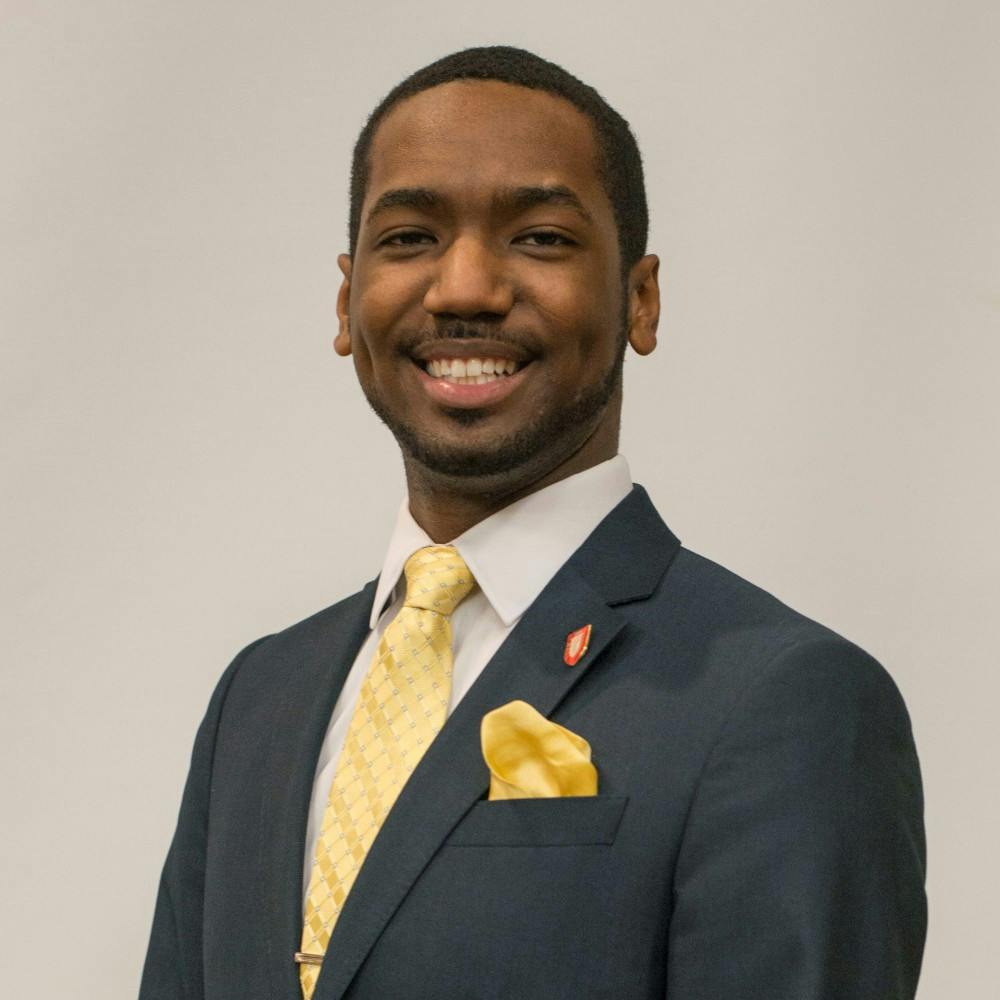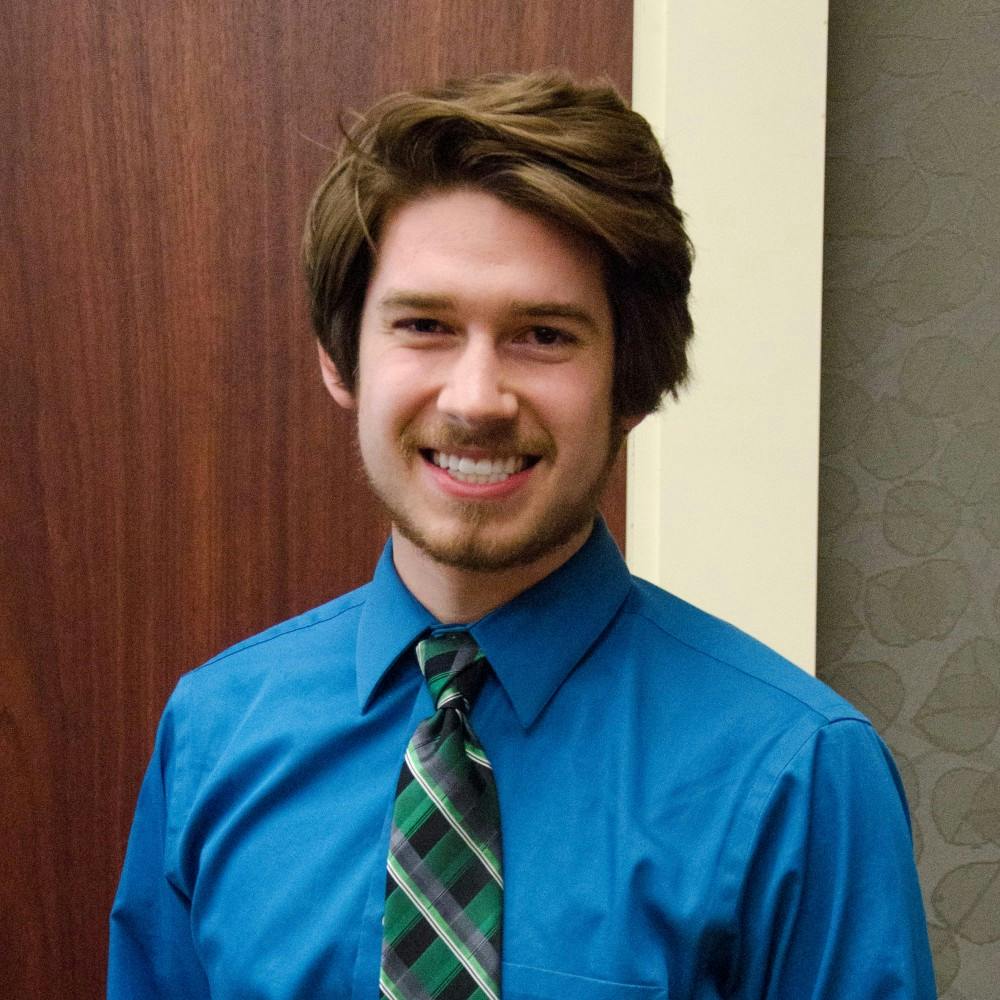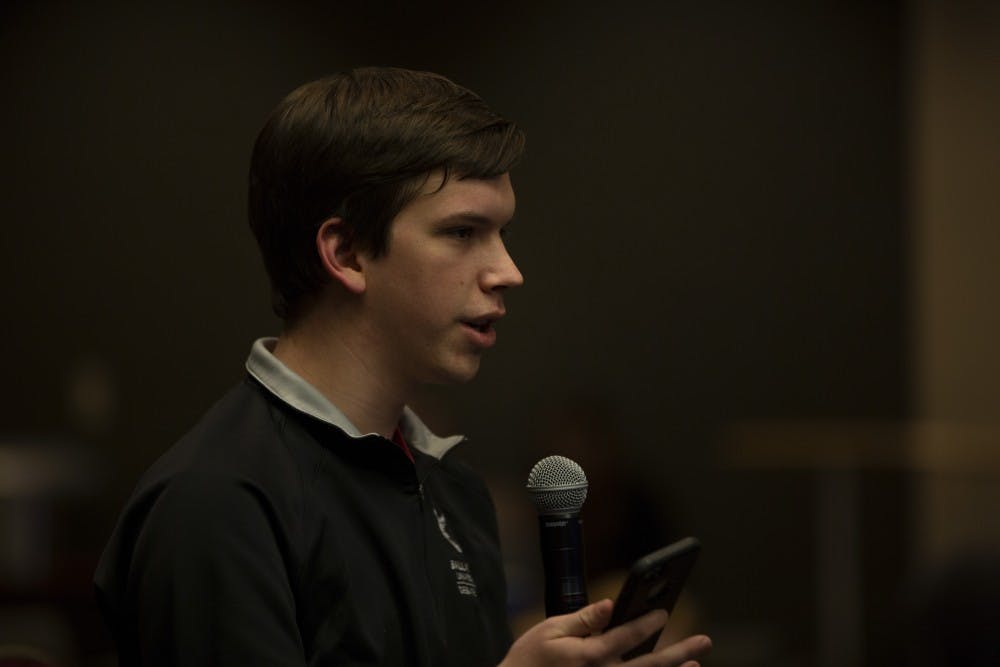As Empower, Elevate and United look to the future of the Student Government Association, past and current presidents are reflecting on their time at the helm of the student body.
Though he graduated a few years ago, James Wells said he is following the current SGA election “very closely.”
As the mayor’s neighborhood advocate for the near-east side of Indianapolis, Wells has remained active in politics since his term as SGA president in the 2016-17 school year.
The potential for a runoff election has “spurred his interest,” he said, which he’s shown in his attendance of this year’s All-Slate Debate.
In the past few weeks leading up to the election, Wells said he had been reflecting on how he might have improved on his time here, including his slate Summit’s platform points and how they worked with SGA senate.

James Wells poses for a photo during the SGA election in 2016. Wells was the president of SGA for the 2016-17 school year from the Summit slate. Breanna Daugherty, DN File
“I think I should have done a lot of outreach,” Wells said, referring to helping his senators write legislation.
This is something the sitting SGA president, Isaac Mitchell, also said when reflecting on his term with Amplify, though he said he later met with senators each week to help them on legislation.
“I tried to keep that separation between the president and senate,” Mitchell said. “But I think that from the feedback I've heard from senators, they wanted me to play a bigger role in the beginning of the year.”

Jack Hesser smiles for a photo during the 2015 SGA election. Hesser was the president of SGA for the 2015-16 school year from the slate Atlas. Breanna Daugherty, DN File
The notion of mentoring and educating is also close to former SGA president Jack Hesser, now a middle school science teacher in Indianapolis Public Schools.
In his 2015-16 term, Hesser said he realized some committees and commissions within administration at Ball State have seats built in for students to serve on them.
“I would bet some money that if you were to look at it right now, not every single one of those slots are filled,” Hesser said.
Encouraging senators and cabinet members to fill these slots is something both Hesser and Mitchell tried to do in their terms. However, Hesser said he didn’t train these students to fully use their influence.
“We never sat down and were like, ‘Hey, every single student that is now appointed, we need to make sure that you're trained and understand what this committee's real purpose is,’” Hesser said.
Aside from placing students in roles outside of SGA, Hesser said combating sexual assault, something the slates running for office now say they prioritize, was front-and-center when his slate, Atlas, was elected nearly four years ago.
Hesser said his slate worked with hall councils to fund sexual assault programming, collaborated with former peer victim advocate Allison Wynbissinger and created an SGA cabinet position for a secretary of social justice, among other initiatives.
“I was very happy with the work that we started and was a little disappointed to see that other slates after our year ... there wasn't as much of an emphasis [on sexual assault prevention], because that is an incredibly important and serious issue that requires competent student leaders to dig in and try to actually enact change,” Hesser said.
Looking ahead, Wells said SGA should be more proactive in handling issues that might arise, like in response to the John Schnatter controversy, and that opportunity is ripe for the upcoming slate to rise to the occasion.
“Give it your all,” Wells said.
Contact Sara Barker with comments at slbarker3@bsu.edu or on Twitter at @sarabarker326.





